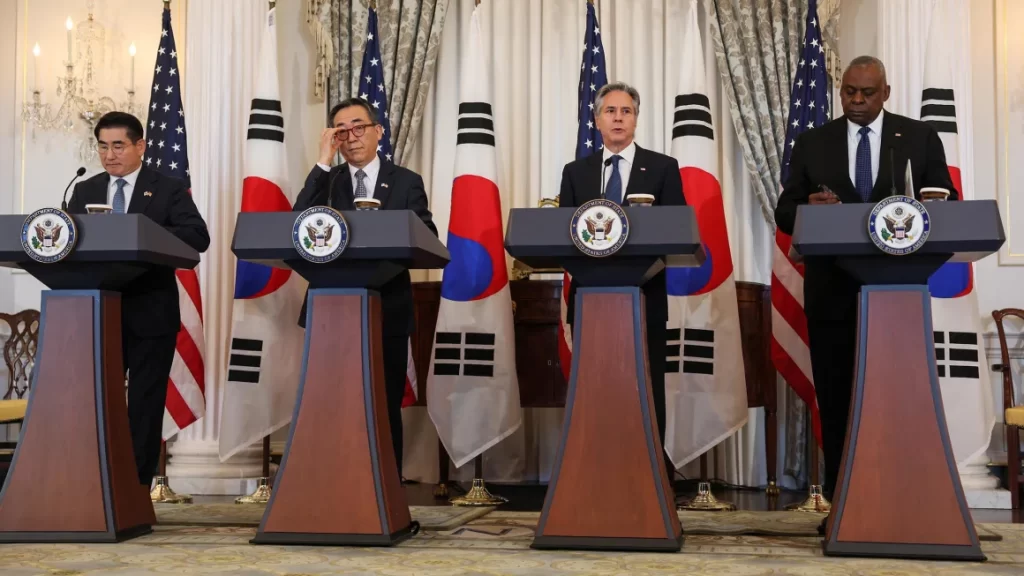U.S. officials have revealed that approximately 8,000 North Korean troops stationed in Russia’s Kursk region are expected to join combat operations against Ukraine in the coming days. This announcement, made Thursday by Secretary of State Antony Blinken and Secretary of Defense Lloyd Austin during a joint press conference with their South Korean counterparts, underscores growing concerns over the military collaboration between North Korea and Russia.
Blinken stated that these troops have undergone training in various military skills, including artillery, unmanned aerial vehicles (UAVs), and basic infantry tactics like trench clearing. He emphasized that this training indicates a clear intention for these forces to be deployed in frontline combat roles. Although the U.S. has not yet observed these troops in active engagement, Blinken warned that any involvement in combat or support operations would make them legitimate military targets.
The North Korean troops in Kursk represent a significant portion of the 10,000 that the U.S. believes were dispatched to Russia. This looming deployment raises questions about how the U.S. and its allies will respond to the increasingly robust military partnership between Moscow and Pyongyang.
During the press conference, Austin noted, “We are consulting closely with our allies and partners in the region on these reckless developments and on our response.” He indicated that the U.S. plans to announce additional military assistance for Ukraine in the near future.
The situation in Kursk has already seen Ukrainian forces maintaining territorial control following a surprise incursion into the Russian border area in August. Ukrainian President Volodymyr Zelensky called for increased support from South Korea and warned that the introduction of North Korean troops could lead to significant casualties as Russia seeks to minimize its own troop losses.
When asked about Ukraine’s ability to hold territory in Kursk amidst the deployment of North Korean forces, Austin expressed confidence, stating, “The answer is yes.” He pointed out that the number of North Korean troops being sent to Kursk is minor compared to the significant losses Russian forces have experienced over the course of the conflict.
The U.S. officials reiterated their calls for China to leverage its influence over North Korea to curb these provocative military actions. Blinken noted, “We’ve had communications with China— in fact, we had a robust conversation just this week. I think they know well the concerns that we have and the expectations that they’ll use their influence to curb these activities.”
He further stressed that the growing collaboration between Pyongyang and Moscow should be a matter of concern for Beijing, as it poses a destabilizing threat to regional security.
Zelensky, in an interview with South Korea’s KBS, expressed his surprise at China’s silence regarding North Korea’s military support for Russia. “I can’t say that China is on our side, but as a regional security guarantor, its silence is striking,” he remarked, highlighting the implications of China’s inaction.
As the situation develops, the U.S. and its allies remain vigilant, preparing for a potential escalation in hostilities that could result from North Korean involvement in the conflict. The prospect of additional foreign troops entering the fray adds another layer of complexity to an already volatile situation, with the potential for significant ramifications not only for Ukraine but for broader regional stability as well.
The impending deployment of North Korean forces marks a critical juncture in the ongoing war, raising urgent questions about the strategic calculus of both Ukraine and its international allies. The U.S. response, alongside concerted efforts to engage with regional powers like China, will play a crucial role in shaping the trajectory of the conflict in the weeks to come.







